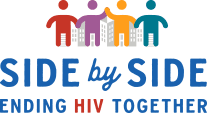National HIV Testing Day is observed every year on June 27th. It is a day dedicated to shedding light on the importance of HIV testing and ensuring that people are aware of their HIV status. HIV is a virus that attacks the immune system and can lead to AIDS if left untreated. Let’s explore the significance of National HIV Testing Day and why HIV testing is so important for those living in Marion County, IN, and everywhere.
Raising Awareness
One of the key objectives of National HIV Testing Day is to raise awareness about HIV. Many people are still unaware of the virus, its symptoms, and how it can be transmitted. We can encourage people to learn more about HIV and take proactive steps to protect themselves and others. We believe that Marion County and Indiana can become a place where new HIV transmissions and cases of AIDS are rare, people living with HIV have treatment and services to support health and prevention, and few people are vulnerable or exposed to the virus. Education is key, and National HIV Testing Day serves as an important reminder for us to continue spreading factual information about HIV.
Early Detection
Another critical aspect of National HIV Testing Day is promoting early detection. Many people who get HIV do not show any symptoms for years. By the time they do, the virus has likely already caused significant damage to their immune system. Early detection is crucial because it allows for prompt treatment, which can slow down the progression of the virus and improve the person’s quality of life. The cost of treatment can also be reduced if you learn of a positive HIV status early. The more the virus attacks the immune system and goes untreated, the more care and treatment will be needed.
Those who test for HIV early and are positive have a 57% reduced risk of developing AIDS. Everyone should be tested for HIV annually. It is crucial if you are sexually active or have shared injection equipment at any point in your life to get tested routinely. Testing is free and confidential, even if you don’t have health insurance. Your primary care doctor can test you during your next routine visit, you can purchase a home testing kit at a pharmacy like Walgreens or CVS, or you can make an appointment with a testing center close to you using our resource finder tool.
Reducing Stigma
HIV is still surrounded by stigma, which often results in people being afraid or ashamed to get tested. National HIV Testing Day serves as a reminder that getting tested is normal and important. It is not something to be ashamed of but rather something to be proud of. Getting tested is an act of self-care and a way to protect yourself, your partners, and your community.
HIV is just a health status, not a defining characteristic. When engaged in treatment and practicing healthy habits, people living with HIV can live the same long, healthy, and happy life as someone who does not have HIV. Don’t let a diagnosis change the way you treat yourself or interact with others. If you don’t live with HIV, treat those who do have HIV with respect and understanding. Not every conversation needs to center around their health, but by being informed about HIV, how it cannot be shared, and how it can, you can become a supportive & effective voice in ending HIV stigma.
When people are first diagnosed, they become much more likely to experience anxiety and depression. Having a solid social support circle can be crucial to curbing these symptoms and helping them succeed with their treatment. By empowering them to focus on and appreciate the aspects of their lives that don’t revolve around HIV, you can help them strengthen the parts that do.
Prevention
HIV prevention methods such as PrEP, PEP, and condoms are critical tools in HIV prevention. PrEP (pre-exposure prophylaxis) is a daily pill that HIV-negative individuals can take to lower their chances of contracting HIV. PEP (post-exposure prophylaxis) is a treatment that can be taken after a potential exposure to HIV to prevent infection. Condoms are also an effective way to reduce the risk of HIV transmission during sexual activity. These prevention methods not only protect individuals from HIV but also contribute to reducing the overall prevalence of HIV in communities. It is important to prioritize prevention efforts to ensure that everyone has access to the resources they need to stay healthy and safe.
Here are a few scenarios where HIV could be transmitted:
-
Having condom-less vaginal or anal sex with someone who has HIV when you are not using PrEP and the person with HIV is not virally suppressed.
-
Sharing injection equipment with someone who has HIV while not using PrEP.
-
Mother-to-child transmission of HIV is possible if the mother is not currently engaged in care and HIV treatment.
-
Being stuck or cut with a sharp object that contains HIV-positive blood.
-
On rare occasions, transmission can occur during a blood transfusion.
It comes down to this: to contract HIV, you need to come into contact with the bodily fluids of someone living with HIV who isn’t virally suppressed.
Ensuring Access to Testing
Lastly, National HIV Testing Day highlights the importance of ensuring everyone has access to testing. Testing should be easy to access, confidential, and affordable. SIDE by SIDE is committed to providing HIV resources for the Marion County community, such as verified free HIV testing. This day reminds us of the need to advocate for better access to testing and treatment for all.
Support your community by scheduling your free HIV test and help promote awareness about HIV testing and its importance. By continuing to educate, reduce stigma, and promote access to testing, we can help to end HIV and ensure that everyone has access to the care they need.






